Muji shelving units combine to create a living space in Fumihiko Sano's installation
Tokyo architect Fumihiko Sano used Japanese design brand Muji's popular steel shelving system to create this room-like installation for an exhibition exploring standard units of measurement (+ slideshow).
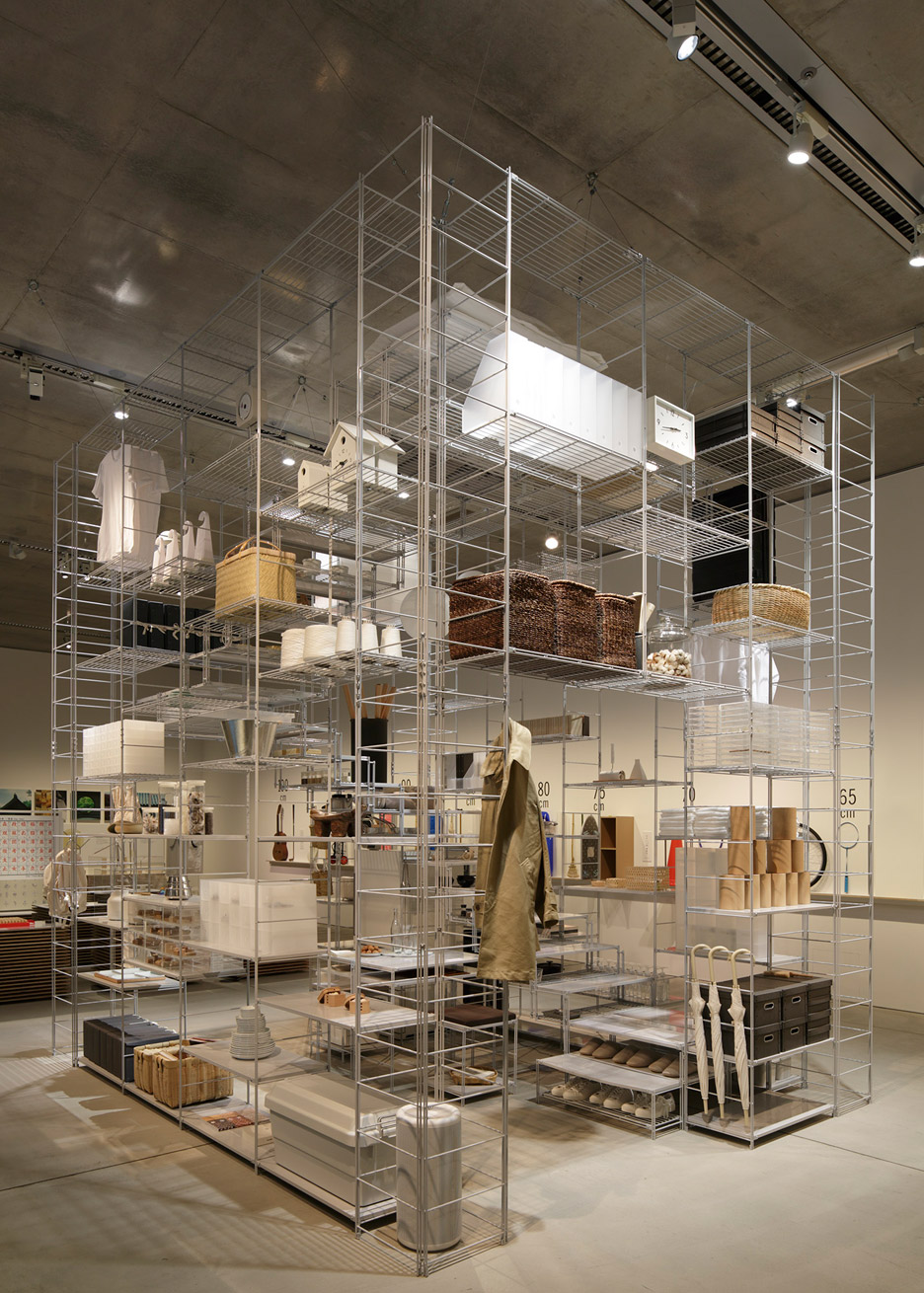
Sano, who is the founder of Studio Phenomenon, created the temporary structure for the exhibition Measuring: This much, That much, How much?, held at Tokyo's 21_21 Design Sight gallery from February to May 2015.
Titled Unit of Muji, the installation was constructed using the brand's first furniture item – a steel shelving unit that went into production in 1996.
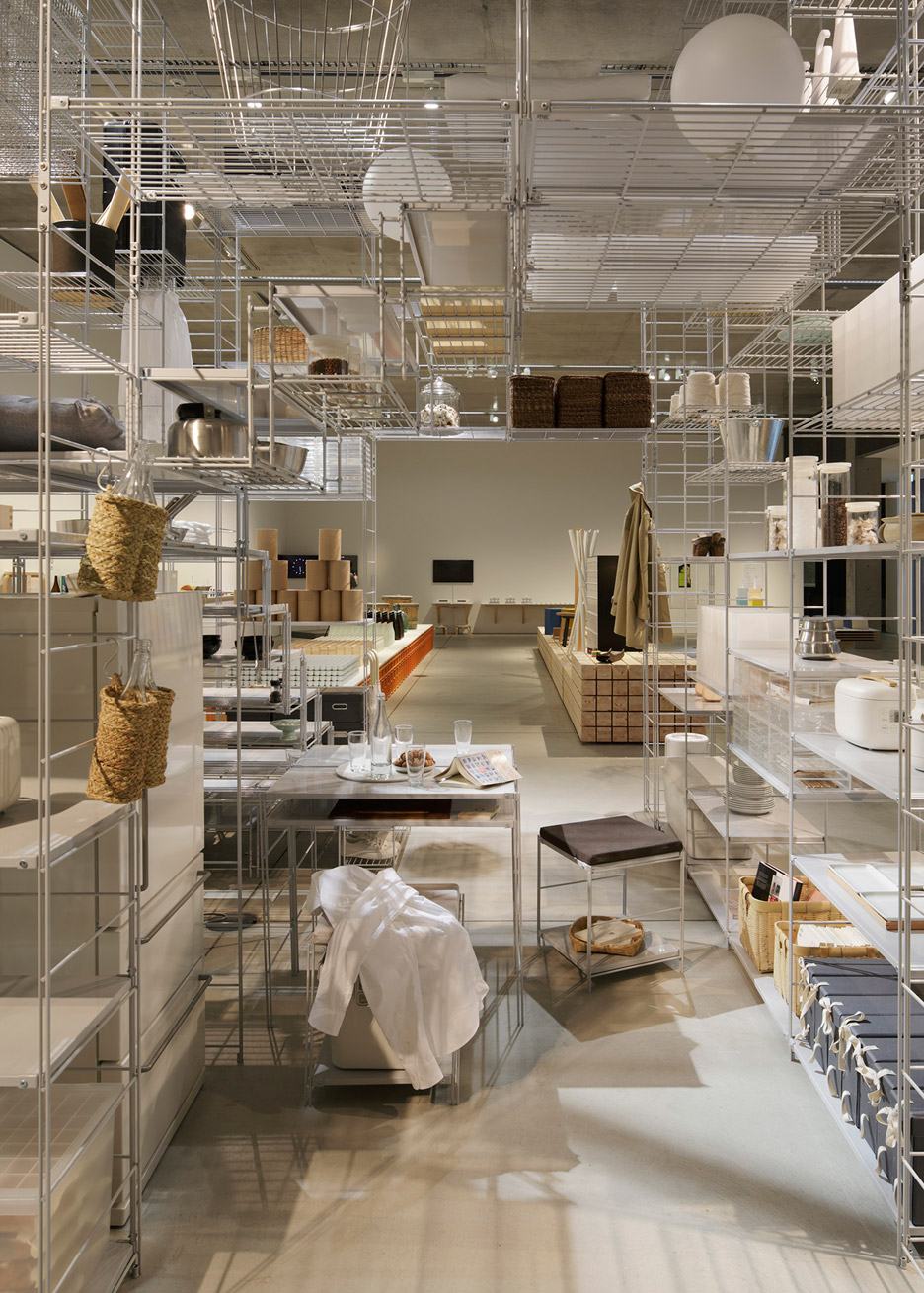
Twenty years on from its launch, the self-assembly shelf has become a staple of Muji's interior design range. Sano's design aimed to offer a fresh interpretation of the familiar product's usage.
"For this exhibition, I came up with the idea to expand the function of the shelf from just a storage space to a space to live in," said the architect. "The result of this concept is 'Muji's measurement', where the storage and living space is seamlessly unified."
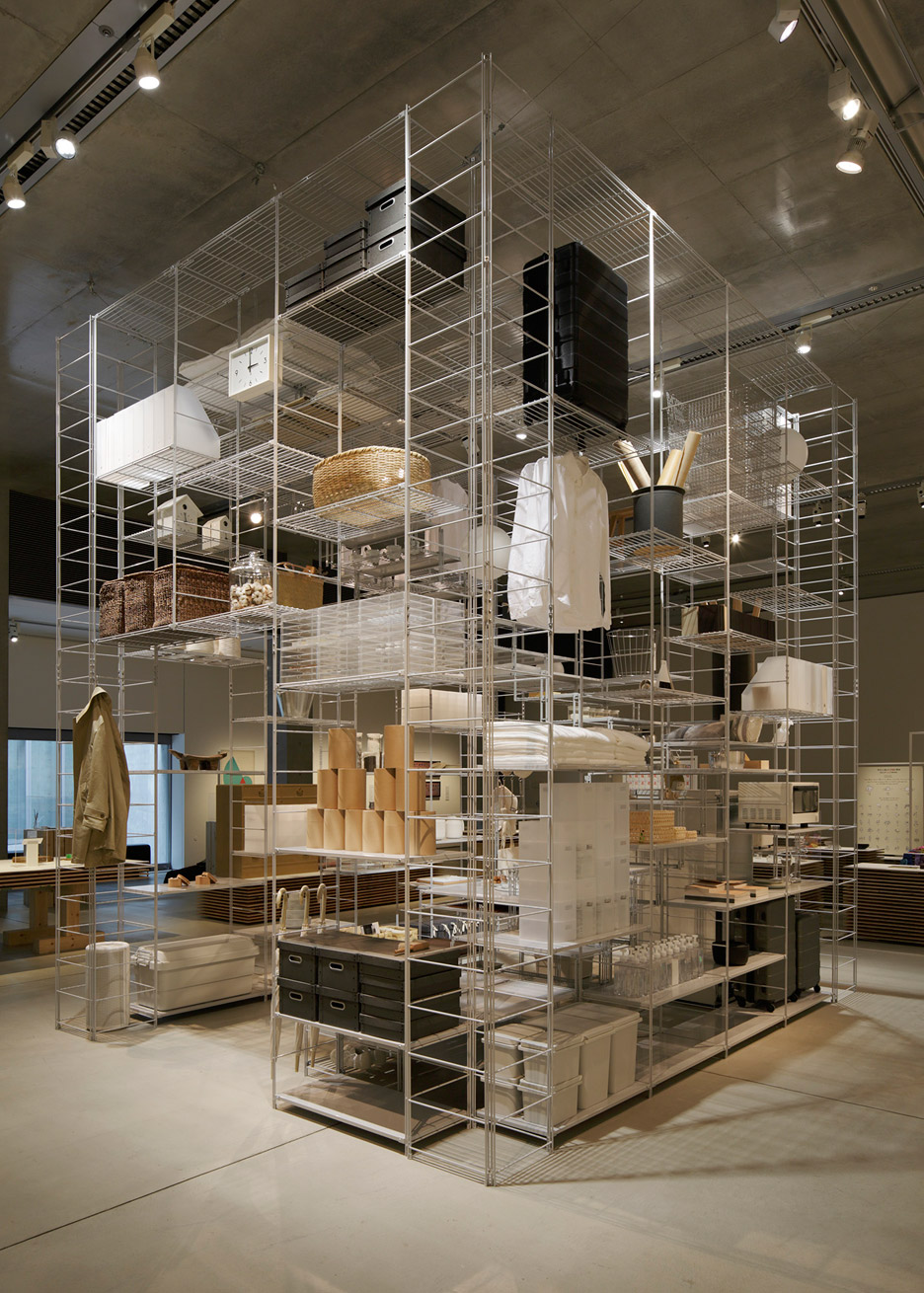
Sano said the product's measurements of 800 millimetres by 370 millimetres were informed by the dimensions of the shaku – a standard measuring unit used in traditional Japanese architecture.
The installation was made up of shelves with two different lengths that formed a grid applied to both the horizontal and vertical surfaces. Smaller units stacked to create pillars at the corners supported the space's external walls.
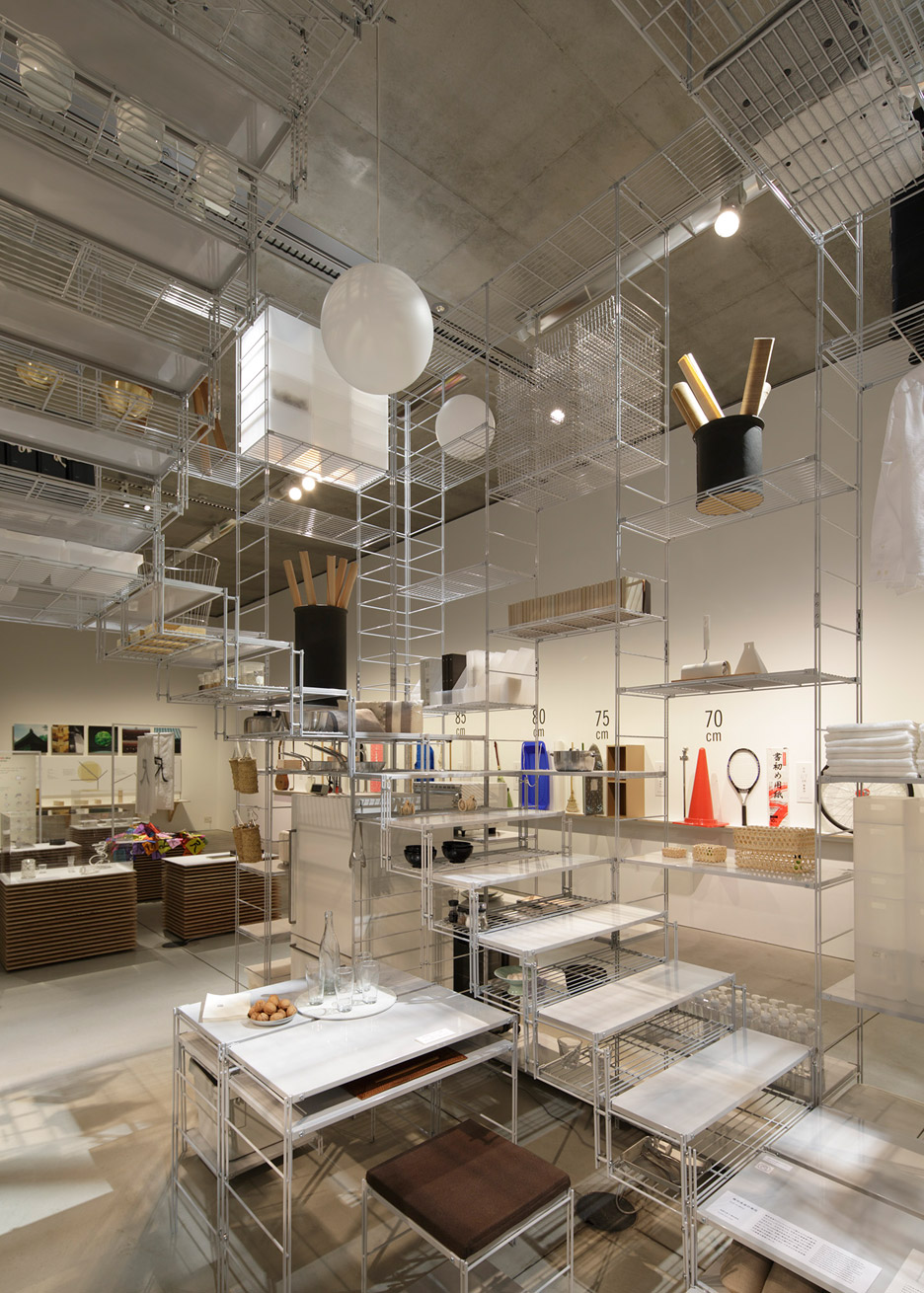
Irregularly arranged shelves displayed a selection of Muji's homeware products and clothing items. A staircase and dining table that extended into the internal area were designed to enhance the idea of a liveable space.
"By using steel shelving units to build a kind of style commonly seen in Japanese architecture, where the pillars are installed instead of walls for support, I suggested a new perspective on the living environment of Japanese people," Sano added.
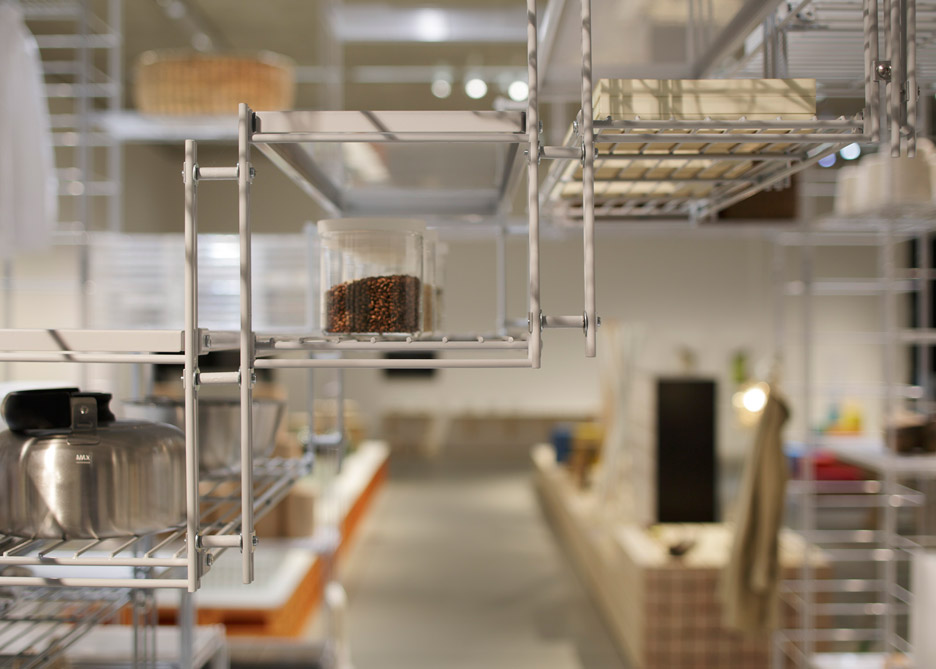
Only a couple of joints had to be removed from the existing shelving units to enable the configuration of multiple items without any welding.
The simple connections and minimal metal-rod surfaces were left visible to emphasise the lightweight construction.
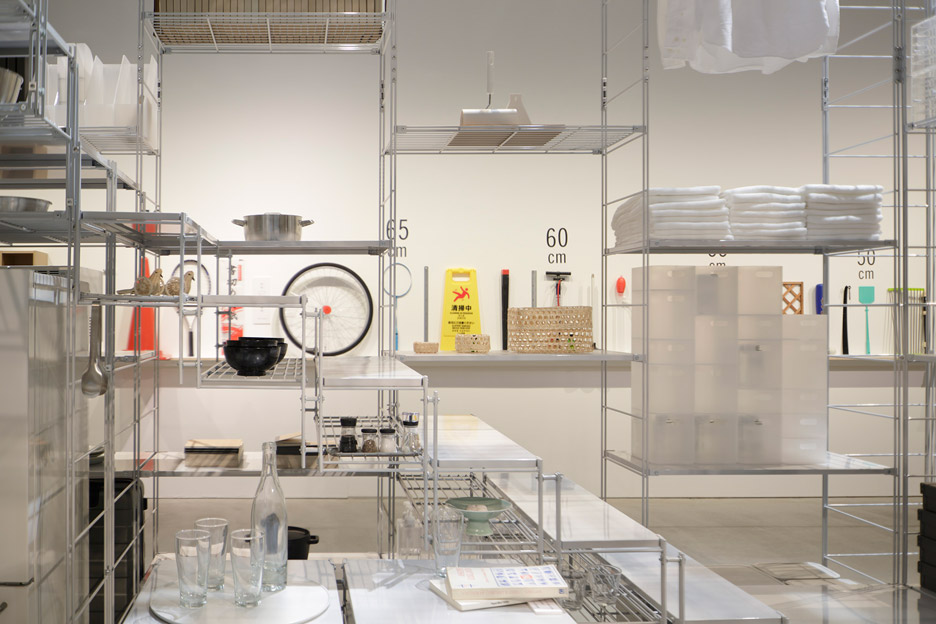
Fumihiko Sano has previously designed a dimly lit, wood-lined room for conducting ceremonial gift wrapping at a member's club in Paris, and installed a freestanding wooden display counter that runs the full length of a crafts showroom in Tokyo.
Photography is by Daisuke Shima/Nacása & Partners.